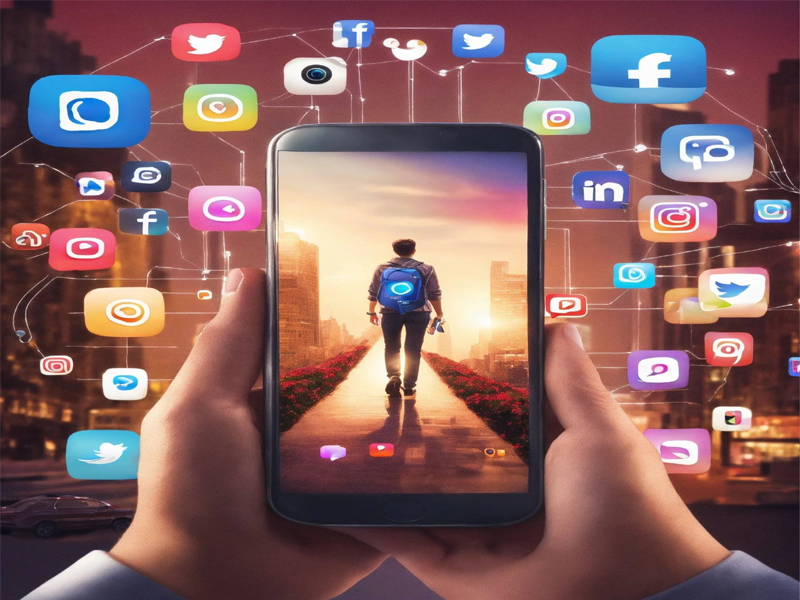The upcoming generation's digital journey

- 223
- 0
In the digital age, social media has become an integral aspect of daily life, especially for the upcoming generation. With the proliferation of smartphones and internet connectivity, young people are increasingly immersed in virtual spaces, shaping their identities, relationships, and worldview through online interactions.
This article delves into the impact of social media on the upcoming generation, exploring its opportunities, challenges, and implications for society. Digital Natives: Embracing Connectivity The upcoming generation, often referred to as digital natives, has grown up in a world where social media is ubiquitous. From a young age, they are exposed to various platforms, navigating the digital landscape with ease and familiarity. For these individuals, social media serves as a primary means of communication, entertainment, and self-expression, fostering connections with peers across the globe and enabling the exchange of ideas and experiences. Shaping Identity and Self-Expression Social media platforms offer young people a space to curate and express their identities, interests, and values. Through profile customization, sharing of photos and videos, and engagement with online communities, individuals can craft virtual personas that reflect their unique personalities and aspirations. From fashion influencers to activists advocating for social change, social media provides a platform for self-expression and empowerment, allowing young people to amplify their voices and connect with like-minded individuals. The Influence of Social Media on Relationships While social media facilitates connectivity and communication, it also shapes the dynamics of interpersonal relationships among the upcoming generation. Platforms like Instagram, Snapchat, and TikTok enable constant interaction and sharing of moments, blurring the boundaries between online and offline worlds. However, the prevalence of social media can also lead to challenges such as cyberbullying, comparison culture, and digital addiction, impacting the mental health and well-being of young users. Navigating Information and Disinformation In an era of information overload, social media plays a significant role in shaping perceptions and beliefs among the upcoming generation.
While these platforms offer access to diverse perspectives and sources of knowledge, they also serve as breeding grounds for misinformation and propaganda. The spread of fake news, conspiracy theories, and divisive content poses challenges for young people as they navigate the digital landscape, requiring critical thinking skills and media literacy to discern fact from fiction. Cultivating Digital Citizenship and Responsibility As stewards of the digital future, the upcoming generation bears the responsibility of cultivating positive online communities and promoting digital citizenship. Educators, parents, and policymakers play a crucial role in equipping young people with the skills and knowledge to navigate social media responsibly, including understanding online privacy, practicing digital etiquette, and engaging in constructive dialogue. By fostering a culture of digital responsibility and empathy, the upcoming generation can harness the potential of social media for positive social change and collective empowerment. Conclusion: Embracing the Digital Journey The upcoming generation stands at the forefront of the digital revolution, navigating the complexities of social media with resilience and adaptability. While social media presents opportunities for connection, creativity, and empowerment, it also poses challenges that require careful consideration and proactive measures. By fostering digital literacy, promoting responsible online behavior, and cultivating a culture of empathy and inclusivity, young people can harness the transformative power of social media to shape a more equitable, interconnected, and compassionate world.

















































